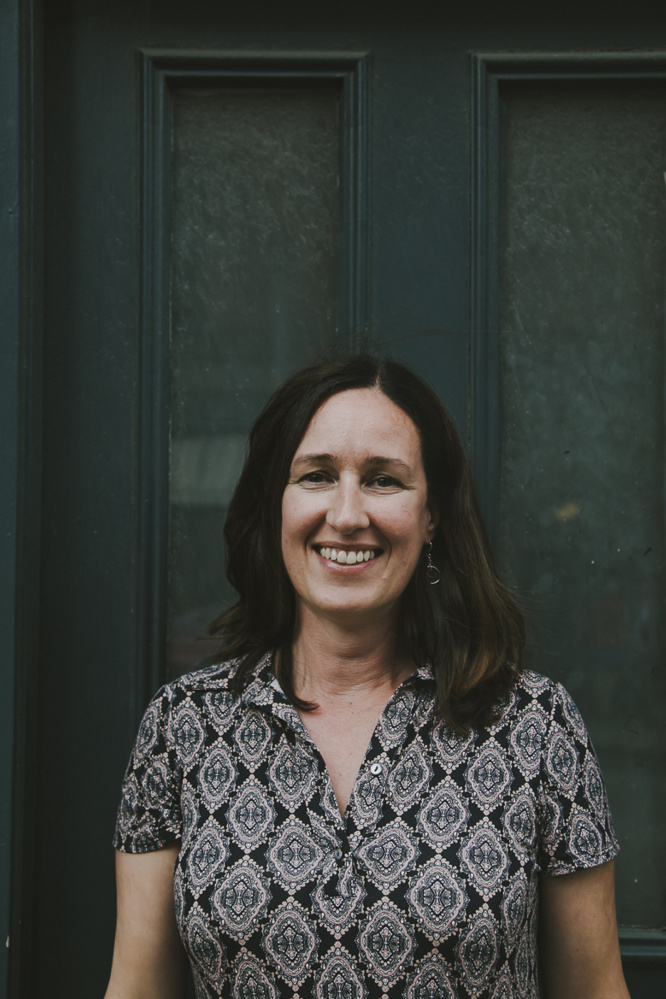Amanda Beal, the daughter of a Maine dairy farmer who grew up to be a policy advocate and expert in agriculture and sustainability, was named president and chief executive officer of Maine Farmland Trust on Monday.
Known to most in Maine’s food movement as the co-author of “A New England Food Vision,” which studied the potential for expanding food production on land and at sea in Maine and throughout New England, Beal also has served on the boards of the Maine Organic Farmer and Gardeners Association, the Eat Local Coalition and Cultivating Community.
Beal joined Maine Farmland Trust in 2015 and most recently had been serving as the vice president for the nonprofit, which protects farmland and advocates for farmers throughout the state. She has a master’s degree in agriculture, food and environment from Tufts University and is working on her doctorate in natural resources from the University of New Hampshire. She succeeds John Piotti, the longtime leader who this spring was named president of American Farmland Trust, which does the same sort of advocacy work on a national scale.
Maine Farmland Trust will continue Piotti’s work and aim far into the future in its planning, Beal said.
“I see us continuing to do the good work that we’re doing, and to look ahead and think about how we fit into a longer-range strategy for Maine,” Beal said. “What do we need to be doing to make sure we are going to have successful farmers in 50 years?”
At one point in the 19th century, 6 million acres in New England were being farmed. Today, that has shrunk to about 2 million acres. In “A New England Food Vision,” Beal and researchers looked at how the region could expand to 6 million acres again and produce as much as 50 percent of its food. Maine’s food system has a rare opportunity to shape its future because of how much land is still available in the state, she said.
In the meantime, there is an immediate focus on protecting farmland in the southern parts of the state.
“There is a lot of development pressure there,” Beal said.
Maine Farmland Trust, which is based in Belfast, recently established a Portland office to help address issues in that area. “There is a lot that we need to be doing to make sure that farmland is not being carved up into house lots,” she said.
Maine Farmland Trust tries to go far beyond simply protecting land, by offering support to farmers to help them succeed. Beal has personal experience with that. Her brother and father were featured in “Growing Local,” a series of short films about Maine farms in transition. Their story ended on a bit of a “cliffhanger,” Beal said, as it was unclear how they would move forward. But the dairy farm is now part of Farms for the Future, a statewide economic development program administered through the Maine Department of Agriculture, Forestry and Conservation, and the father-son team is running it together. They built a new barn and developed a succession plan.
Beal was active in the process of protecting the farm. She and her husband are living in Portland, but he has built a creamery on her family’s farm in Litchfield and plans to start making cheese there this fall.
“When I was a teenager I thought I wanted to go away,” Beal said. “It has really been exciting for me to reconnect with my interest in agriculture in my own way in my life and to have a role in the farm’s future.”
Her firsthand experience will guide – and ground – her in her new role, she said. “I understand how rewarding that lifestyle and profession is, and also how hard our farmers work and the challenges and risks they take,” she said.
Since Maine Farmland Trust was started in 1999, it has protected over 50,000 acres of farmland and served over 500 farm families. It has 6,000 members.
Maine Farmland Trust runs a program called Farmlink, which matches new and young farmers to longtime farmers who are ready to pass their land on to the next generation. They’ve made 150 Farmlinks already. Most recently, the group has helped four Somalia-born farmers find farmland in Lewiston for a new farm called New Roots.
Mary Pols can be contacted at 791-6456 or at:
Twitter: @MaryPols
Send questions/comments to the editors.



